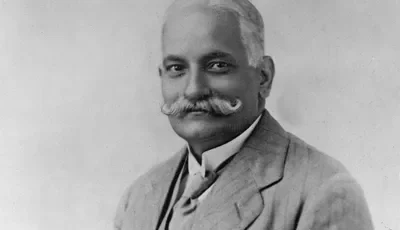Table of Contents
Important Points: Nehru Report
- The Nehru Report was a document prepared by a committee headed by Motilal Nehru in 1928. It was a response to the British government’s invitation to Indian leaders to draft a constitution for India.
- In response to the appointment of Simon’s commission and challenge given by Lord Birkenhead (Secretary of State for India), the All Parties Conference was called at Delhi on 12th February 1928.
- It was presided over by MA Ansari.
- On 19th May 1928 at its meeting in Bombay, the All Parties Conference appointed a committee with Motilal Nehru as its Chairman. Its members were Ali Imam, Tej Bahadur Sapru, Subhash Chandra Bose, Madhav Shrihari Aney, Mangal Singh, Shuaib Qureshi, and G. R. Pradhan.
- This report was not accepted at the All Party Conference held in Calcutta in December 1928.
- The Muslim League rejected the Nehru Report because it did not provide adequate safeguards for the political rights and interests of Muslims.
- In response to the Nehru Report, Muhammad Ali Jinnah presented the Fourteen Points.
Provisions of Nehru Report
- Dominion Status:
- The Nehru Report advocated for India to be granted dominion status within the British Commonwealth, similar to Canada, Australia, and New Zealand.
- This status implied self-governance within the framework of the British Empire.
- Federal Structure: It proposed a federal structure for India, with the central government having authority over subjects of national importance such as defence, foreign affairs, and communication, while the provinces would have autonomy over local matters.
- Bicameral Legislature: The Nehru Report recommended a bicameral legislature at the center, consisting of a Lower House (House of Representatives) and an Upper House (Council of States), with members elected through direct elections.
- Universal Adult Suffrage:
- It proposed universal adult suffrage, meaning all adults regardless of gender, property ownership, or education would have the right to vote.
- Everyone above 21 years of age can vote unless they’re disqualified.
- Separation of Powers: The report recommended a separation of powers between the executive, legislative, and judiciary.
- Fundamental Rights: The Nehru Report proposed a list of fundamental rights to be guaranteed to Indian citizens, including the rights to freedom of speech, assembly, association, and religion.
- Official Religion: There’s no official religion for the government.
- Formation of Province: Provinces would be formed on a linguistic basis.
- Minority Rights: It included provisions to safeguard the rights of religious and linguistic minorities, including reserved seats in legislatures and protection of cultural and educational rights.
- Joint Electorates with Reservation: The report proposed the adoption of joint electorates rather than separate electorates. Seats would be reserved for minorities in the legislature in proportion to the population to ensure their fair participation.
- Electoral System: The report suggested a system of proportional representation with single transferable vote (STV) method for elections to ensure fair representation of diverse interests.
- Judicial Reforms: It proposed reforms in the judiciary, including the establishment of a Supreme Court with original and appellate jurisdiction, as well as High Courts in provinces.

